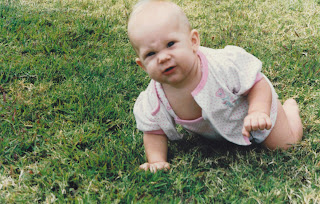Book Review: The Help

One of my Facebook/blogging/real life buddies posted she had just finished reading "The Help" and had loved it. Before her rave, I had about zero interest in either the book or the movie. It wasn't that the subject was not compelling -- an exploration of the relationships between african american domestics and their employers in the deep south during the cusp of the civil rights movement. It was the fact I generally shy away from secular modern literature. There is very often too little truly good literature written today, in my opinion.
This was the first book I've read cover-to-cover on my iPad, which I've owned for just over a year. I just haven't been able to adapt to reading without an actual book in my hands that has actual pages to turn, but I was finally so intrigued by the idea of this novel, I couldn't wait for it to come in the mail. You've got to love the instant gratification of downloading a book and being able to dive into it immediately. Being immensely satisfied by my first iBook experience, I know I'll be reading on my iPad much more frequently!
I loved this book. It was absolutely captivating in its style, characterizations, and plot development. It seems the exploration of the theme was one the author had first hand knowledge of, having been raised by an african american maid, herself, giving the story a genuine feel and plausibility.
The novel weaves its way through the story telling, alternating accounts told by three different characters. First is Skeeter, a young ambitious southern white woman who has just graduated from college with a degree in writing/journalism. Having returned home to find her childhood maid has mysteriously disappeared her eyes are at once opened to the plight of the southern domestic. She approaches the maid of one of her childhood friends asking for answers and then for help in writing a book exposing the increasingly tense relationship between maids and those they serve in Jackson, Mississippi.
Skeeter first approaches maid Abileene for help in answering questions about the disappearance of her family's maid, and then brazenly asks Abileene to tell her story as part of a book project Skeeter decides to undertake. Abileene is the second character given voice in the novel. She is a maid specializing in caring for the children of the household. Having worked in white households for decades, Abileene has seen it all; the good, the bad, and the ugly. She has taken it all in stride, but has also attempted to leave her mark on the white children she has raised with the hope they will be different and will one day be able to look beyond color.
Minny is the third voice for the story. A domestic like Abileene, she has failed at taking it in stride. Her character is mouthy, opinionated, strong and yet incredibly vulnerable. Known as a great cook, her reputation is intentionally ruined by the spiteful, racist president of the Lady's League, and main story antagonist Hilly Holbrook. Minny is relegated to working for the apparently crazy Celia Foote who is too naive or stupid to realize she will never fit in with the proper white ladies of Jackson because of her beginnings as white trash. Fed up with working for a nut and having her reputation ruined, Minny agrees to help Skeeter and Abileene with the book.
The book project is an incredibly dangerous undertaking for all three women. Ostracization, unemployment, and lynching are all risks these three brave women are finally willing to take to make a change in Jackson. It becomes their personal civil rights crusade.
Stylistically this is an easy and enjoyable read. While I normally prefer to not read books containing profanity, this novel did have a fair share, but it wasn't as distracting nor disturbing as I normally find it. I would recommend this book to older high school students and adults due to profanity and adult content and themes.

Comments